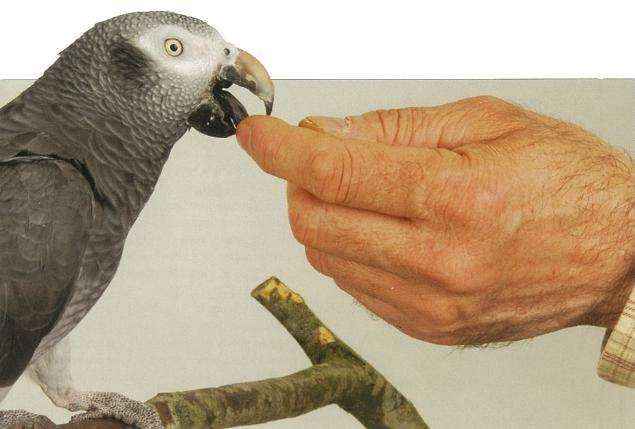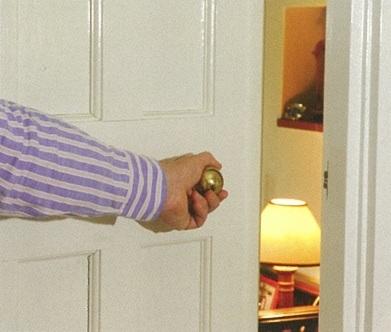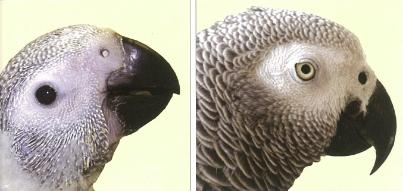Growing up: from baby to adult
Parrots should never be 'blamed' for whatever they do. It isn't helpful to project human emotions and values onto birds. All the behaviours that you see your bird performing are done because the bird is either trying to obtain something it needs, or it is trying to avoid something which may be harmful to it. As a young grey begins to mature at two to three years old, the changes in its behaviour are much the same as you would expect to see in any other animal, such as a puppy or a kitten, as it grows up. The 'cuddly tame' baby bird on sale at a breeder's premises or a pet shop will be a very different bird within two or three years and this is quite normal. As with other immature creatures, parrots adopt very submissive behaviours which encourage others to treat them gently while they are defenceless. However, as the bird matures, its needs change, so naturally does its behaviour. To be prepared for your bird's generally more assertive, adult behaviours, just follow the training suggestions explained earlier, and accept the changes in your bird as it becomes an adult.Biting
Most parrot people do get bitten from time to time and usually this is only a minor problem. However, hard biting which causes pain needs to be addressed carefully, otherwise you may unintentionally reinforce such biting and make matters worse. Biting often first occurs with birds as they begin to mature and the first incidents are commonly caused by the bird simply being over-excited, perhaps while in a playful mood. So remember to try to interact with your bird in ways that do not result in such over-excitement. If you are bitten hard, do not return the bird to its cage, otherwise you will soon have difficulty in doing even that! The most effective response is to simply turn your back on the bird, walk out of the room and close the door behind you. Stay out for two or three minutes. When you return, wait for the bird to interact with you, and carry on as normal. If biting occurs again, remain calm and repeat this tactic of leaving the bird alone for a few minutes. In most cases the bird soon makes the connection between biting and being left on its own and then it has an incentive to cease biting.
It's important not to overreact if you are
suddenly bitten by your parrot.
suddenly bitten by your parrot.

If a bird bites you hard, calmly leave the room
without any reprimand, but make sure to close the
door behind you so he cannot follow you.
without any reprimand, but make sure to close the
door behind you so he cannot follow you.

A young grey's typically submissive behaviours do not last into adulthood. As normal adults, greys should show greater confidence and be more assertive.